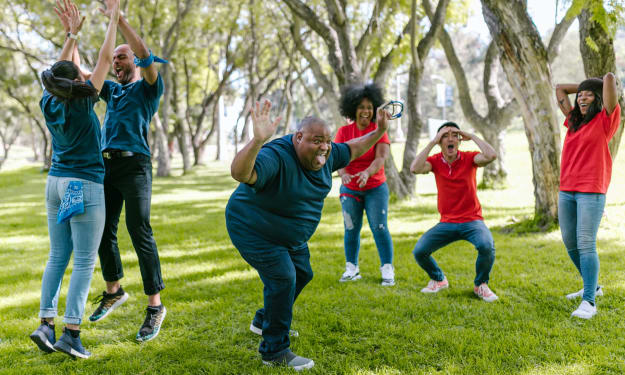
Your dog isn’t the only one reaping the rewards when it comes to training. Working regularly with your dog helps you understand her needs better, making you an even better owner. It can also be a great source of exercise and open up new possibilities for you, the better behaved your dog is, the easier it is to take her along wherever you go.
The better you can control your dog with voice commands, the better you can protect her when unrestrained. A dog that bolts when off the leash is much more likely to run in front of a car or to slip out the front door before you’re ready to leave.
Also, should your dog ever become lost or need to be placed in a shelter, being well-trained only increases the likelihood that she will behave well or, if necessary, be placed with a new family. As your dog learns to respect boundaries and behave properly in social situations, other dogs will be more comfortable and at ease around her.
As a result, more of these interactions will be positive experiences for your dog. If he begins to enjoy these social encounters, your dog will be more relaxed and manageable with each interaction. That increased sociability we just mentioned becomes even more critical when it’s time to board your dog or when friends offer to take her in while you’re out of town.
It’s one thing for your dog to obey the owner’s commands, but a successfully trained dog will follow others and ultrasonic dog trainer orders when you’re not there. Unless you want to cut your vacation short because your dog isn’t playing well with others, ensuring she’s properly trained should be a top priority.
Dogs are a man's best friend, we adore them regardless, but it's much much easier and more enjoyable when the dog is house trained, can do tricks, and responds to simple commands like "leave it," "stay," and "heel."
If the dog's behavior isn't up to par, it's our fault.
If your dog is misbehaving, the cause is most likely a lack of training. And if this is the case, you, the owner, will bear the consequences. Your dog will as well.
According to a 2018 study, a dog's behavioral issues are a significant cause of early death and other problems. There is a direct correlation between the severity of a dog's troubles and the owner's employing coercive or harsh training methods.
A few studies also discovered that human contributions to the dog-human relationship significantly impacted the dog's welfare, behavior, and owner and pet health.
I resolved not to be one of those individuals who disregarded her dog's poor behavior. For many reasons, you might want to train your dog.
I wanted to train my dog from home, this online dog training course was the perfect solution for me. My relationship with Brain Training for Dog started in 2019, and from then, Adrienne has continued to develop and improve her course. Adrienne is one of my dog-training idols.
One of the best things about Brain Training for Dogs is it uses no physical punishment. Any dog guardian can adopt that for their in-home dog training.
What does that imply, then?
In essence, by adopting Adrienne's approach, you will train your dog through positive reinforcement techniques.
Brain Training For Dogs was created by Adrienne Faricelli, a professional dog trainer with over a decade of experience, and has garnered high praise from several top dog trainers.
Why is Brain Training for Dogs is a better option than other harsh training methods?
Regarding dog training, there are many different schools of thought. While some famous dog trainers promote "pack theory," others support a method based on research, such as that taught in the Brain Training for Dogs course.
The last few years have seen a rapid evolution in training, much like how the wolf developed into the dog. Although positive training is now popular, most dog trainers in the 1990s and earlier used choke chains and pinch collars to train their dogs. They favored using strict, harsh measures.
Recent evidence has demonstrated that pack theory coaching isn't the most effective coaching technique because dogs aren't wolves and because the research that formed the basis of pack theory coaching was done on captive wolves, whose relationships aren't the same as those of dogs or wolves in the wild.
Brain Training for Dog is thorough in that it takes you from the very beginning of training to more complex training games. Each chapter is broken down into manageable chunks with detailed instructions.
Throughout the course, a troubleshooting section is included with each activity. What to do when a dog doesn't listen might be more comprehensive or cover more instances in this guide. Your dog should learn the task if you are persistent and consistent with the activity.
About the Creator
Enjoyed the story? Support the Creator.
Subscribe for free to receive all their stories in your feed. You could also pledge your support or give them a one-off tip, letting them know you appreciate their work.





Comments
There are no comments for this story
Be the first to respond and start the conversation.